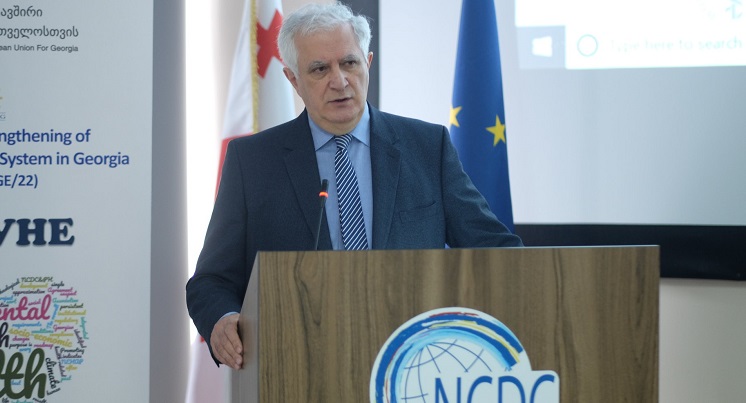Gov’t vows treatment, plan to decrease lead levels in affected children

Results of a large-scale study regarding lead will be available this month.Photo: National Disease Control Centre press office.
The Georgian Health Ministry will create a programme to help children with high lead levels in their blood and will also provide a long-term plan to combat the problem, head of the National Centre for Disease Control Amiran Gamkrelidze said.
He stated that the first, large research study was conducted last year in Georgia when 1,578 children, selected randomly, were tested for lead.
The results of the research will be available on April 20. However, as we already have preliminary results, environmentalists and doctors have been sent to the families for additional checks where the tests confirmed higher levels of lead in children,” Gamkrelidze said.
He stated that the additional checks will identify the source of lead pollution, which is “crucially important” in the fight against the problem.
Gamkrelidze stated that “very soon” a programme will be presented about the ways of treatment for children suffering from high levels of lead.
In the course of two months we will also write a long-lasting plan to eliminate the problem,” Gamkrelidze said.
He stated that the western countries faced the problem in the 1980s and it took about 20 years for them to decrease risks to minimum.
A volunteering group of NGOs and specialists, which conducted the similar survey, stated on April 2 that they found high concentration of lead in construction materials, everyday items, toys and food.
The group had taken samples from 268 everyday items from 17 families living in Tbilisi.
Lead can harm the production of blood cells and bone marrow. It complicates the absorption of calcium needed for strong bones.
Lead damages nerves and causes brain and kidney issues.
 Tweet
Tweet  Share
Share